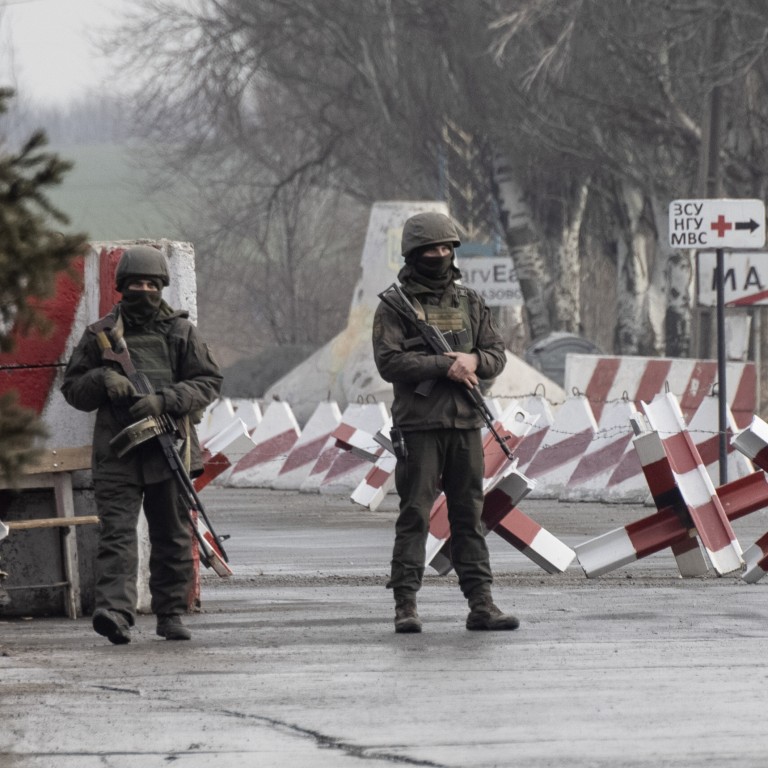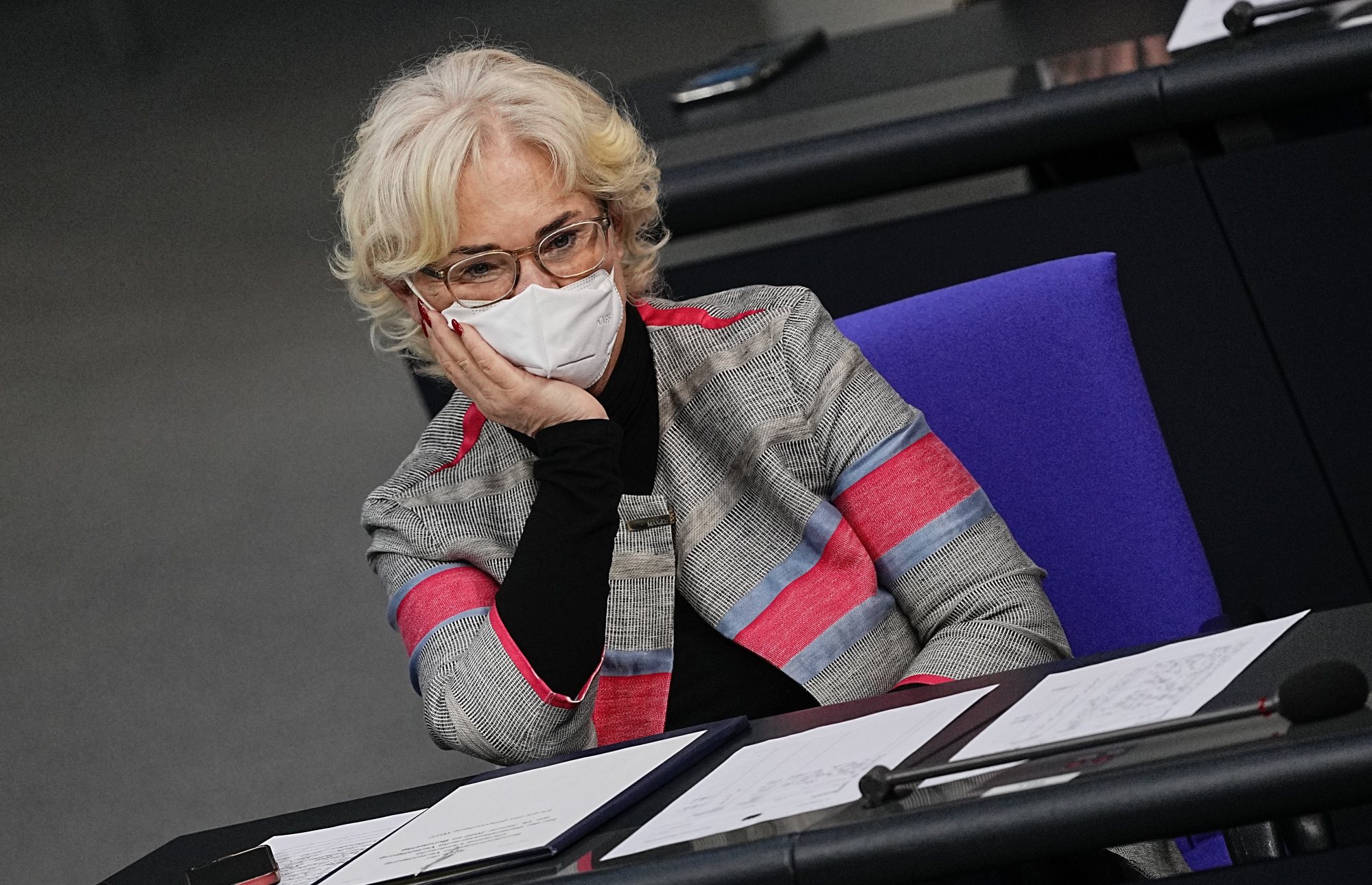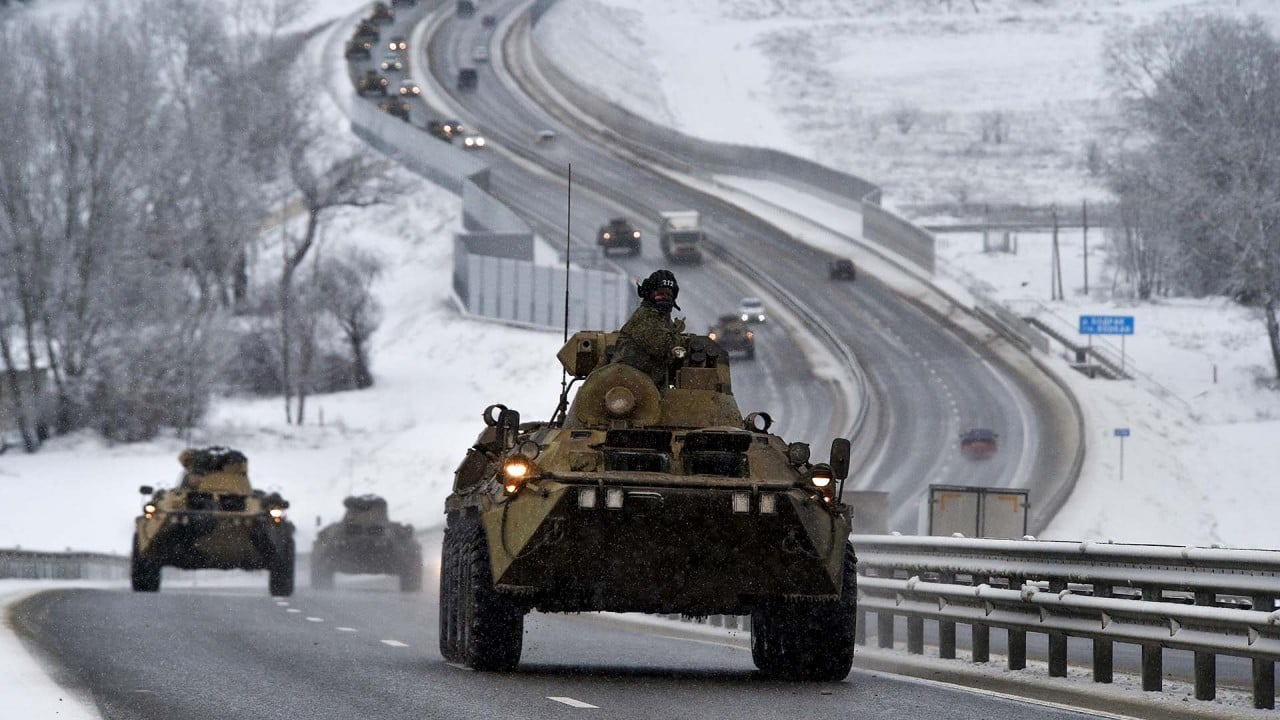
Ukraine to get German field hospital, US weapons arrive as Russia war fears grow
- Berlin, however, rejected Kyiv’s calls for weapons delivery, saying it ‘would not be helpful at the moment’
- Russia has massed tens of thousands of troops on the Ukrainian border, denying it plans to invade but demanding security guarantees
Berlin has already delivered respirators to Ukraine and severely injured Ukrainian soldiers are currently being treated in Bundeswehr hospitals, the minister told Welt am Sonntag newspaper.
“In February, a complete field hospital will be handed over, including the necessary training, all co-financed by Germany with 5.3 million euros (US$6.0 million),” Lambrecht said.
“We are standing on Kyiv’s side. We must do everything to de-escalate the situation.
“Weapons deliveries would not be helpful at the moment – that is the consensus within the government,” she added.
Biden predicts Russia’s Putin will ‘move in’ on Ukraine
Lambrecht remarks came as US military aid arrived in Ukraine on Friday night, according to the American embassy in Kyiv.
The embassy, in a Twitter post, said the material “includes close to 200,000 pounds of lethal aid, including ammunition for the front line defenders of Ukraine.”
“The shipment – and US$2.7 billion since 2014 – demonstrates US commitment to helping Ukraine bolster its defences in the face of growing Russian aggression,” the embassy said in another tweet.
“If Russia wants to begin to convince the world that it has no aggressive intent toward Ukraine, a very good place to start would be de-escalating,” Blinken said on Friday at the end of a three-day European trip.
Biden plans to meet with his national security team over the weekend at the presidential retreat at Camp David, Maryland. White House Press Secretary Jen Psaki said on Friday that “we didn’t expect any breakthroughs to happen today, but we are on a clearer path in terms of understanding each other’s concerns.”
Echoing Western allies, Lambrecht said Moscow’s demand to decide which state joins Nato was a “red line” for the alliance.
“There is no Russian veto-right for membership to Nato. Every sovereign nation that shares our values is free to apply for membership. But beyond this red line, there is readiness from the West to speak with Russia and to take its interests into account,” she said.
Turning to Mali, another theatre of conflict involving Russia, Lambrecht said Moscow will not achieve its aims simply by deploying mercenaries to the West African countries.
Mali is the epicentre of a jihadist insurgency that began in the north of the country in 2012 and spread three years later to neighbouring Niger and Burkina Faso.

Germany has around a thousand troops stationed in Mali as part of the United Nations’ MINUSMA mission.
The West believes that several hundred Russian mercenaries from the Wagner group had been deployed in the centre and north of the country.
“Moscow will not succeed in getting the West to carry out a quasi retreat automatically wherever it doesn’t want to see us by sending mercenaries,” said Lambrecht.
“We will not give way, we will not make it that easy for the Russians.”
The Wagner Group has caused controversy through its involvement in Syria, Libya, the Central African Republic as well as the conflict in eastern Ukraine.
Additional reporting by Bloomberg

.png?itok=arIb17P0)
